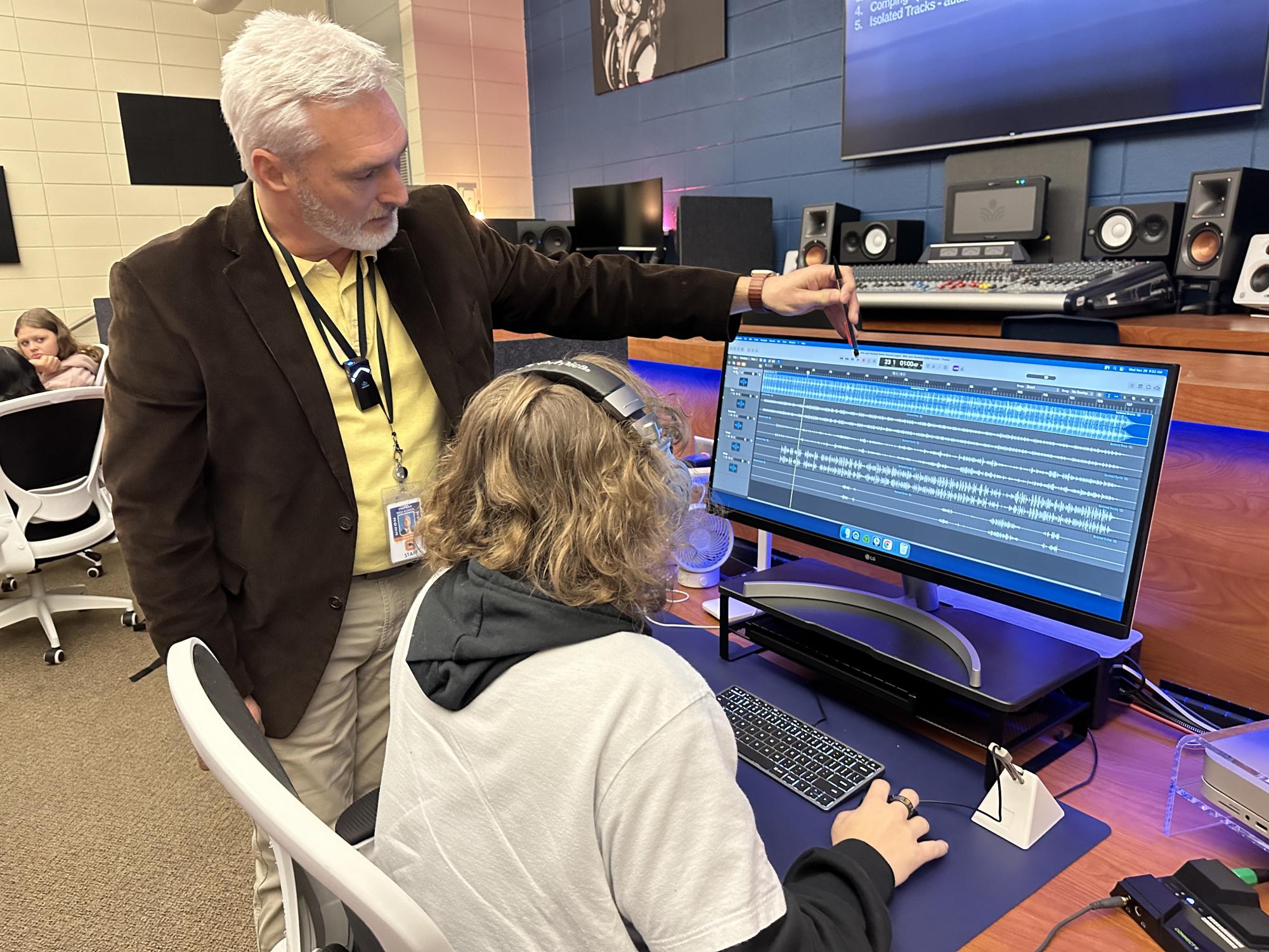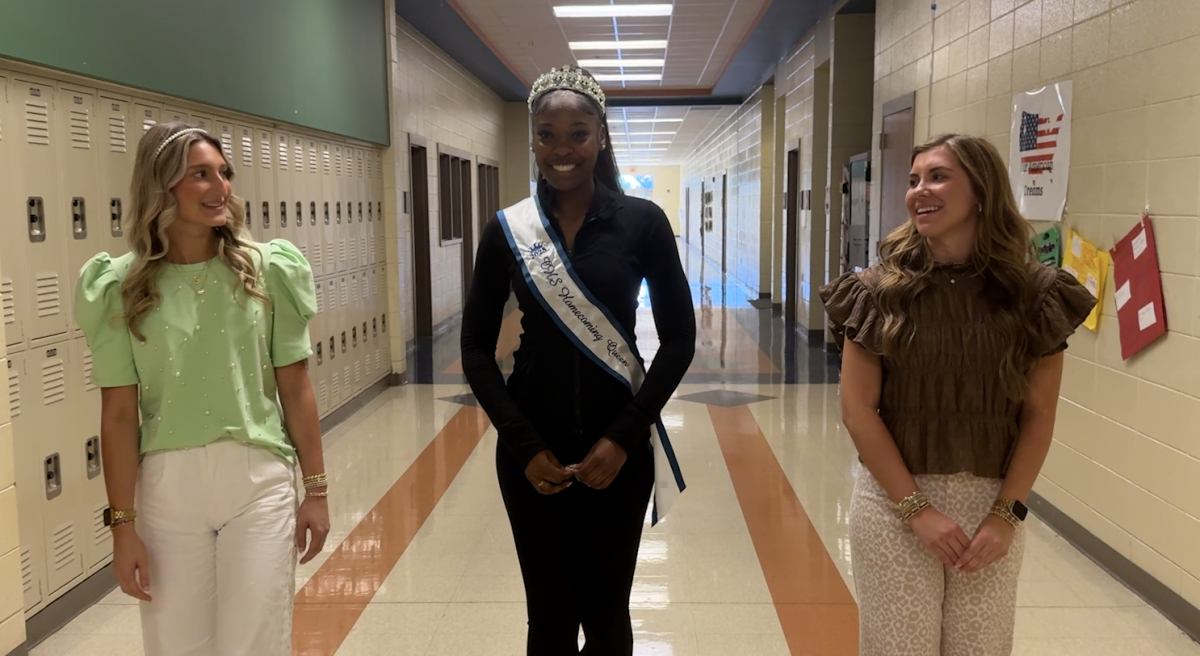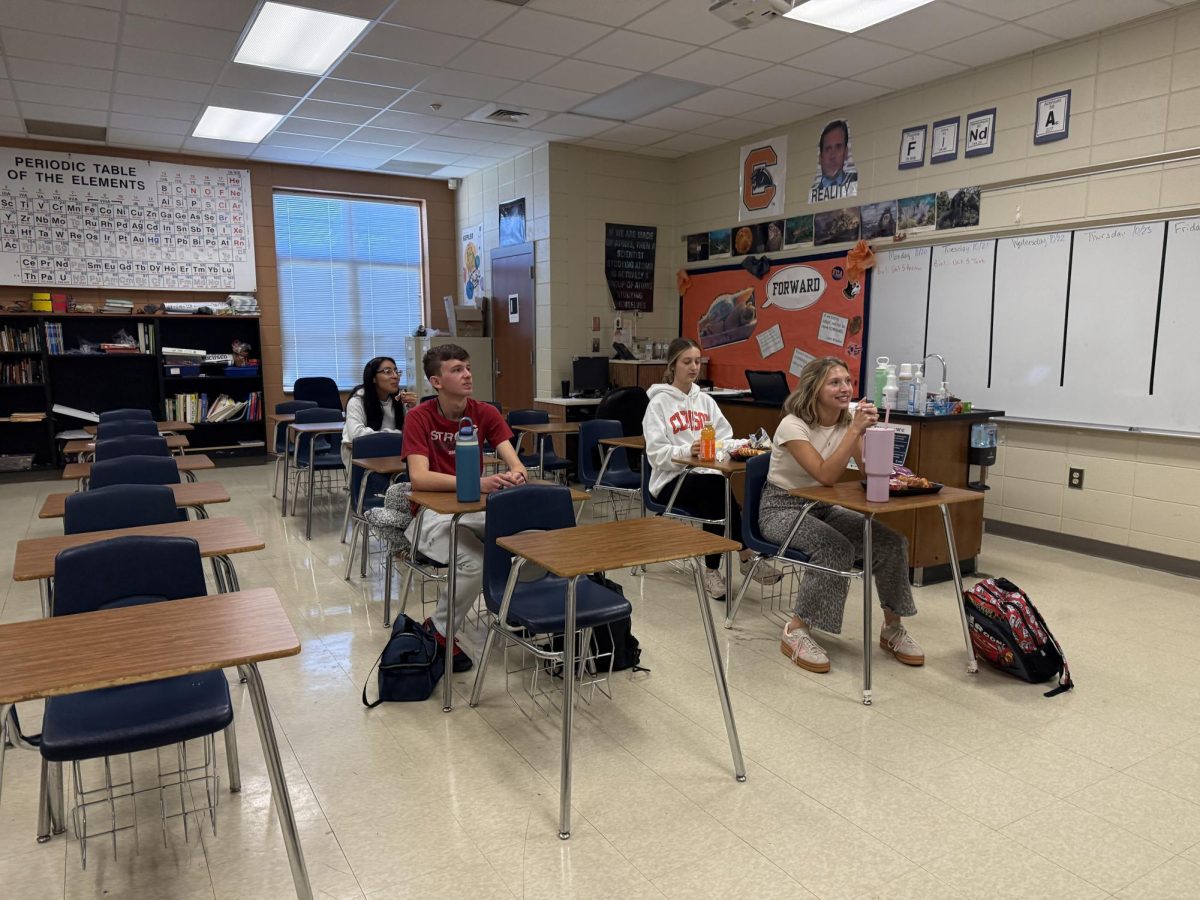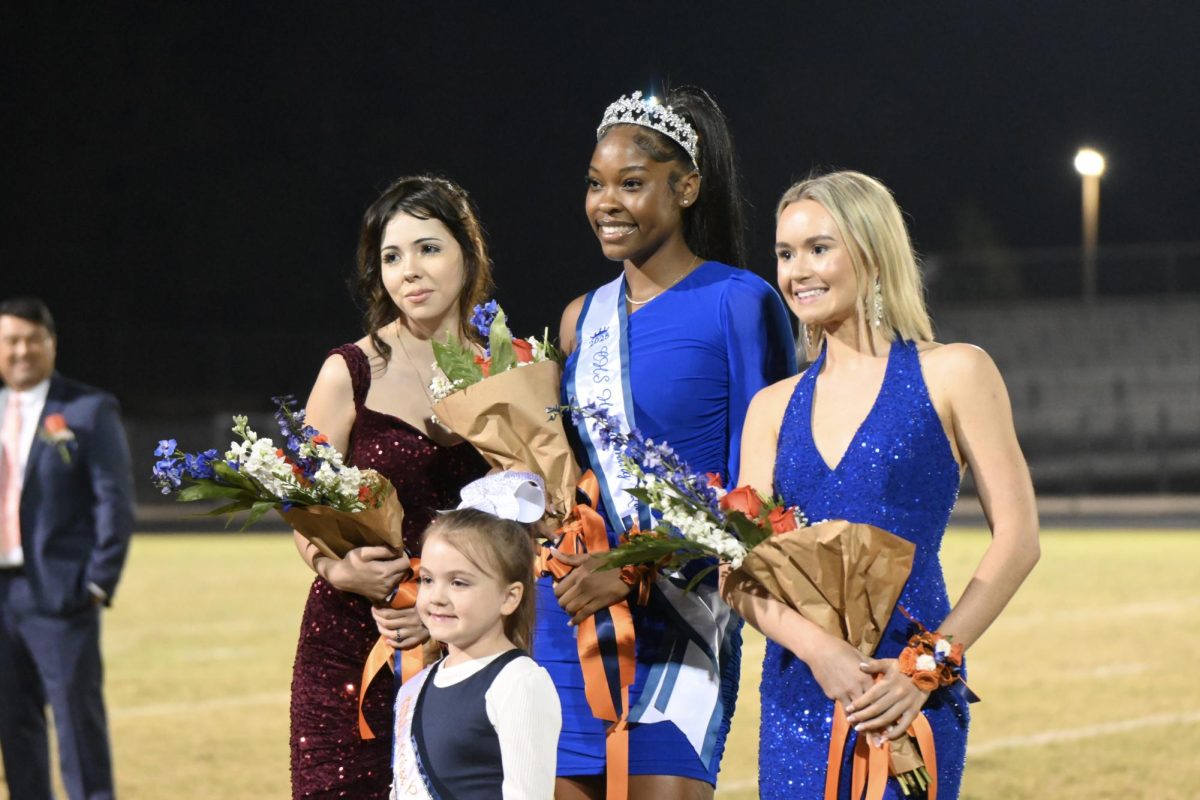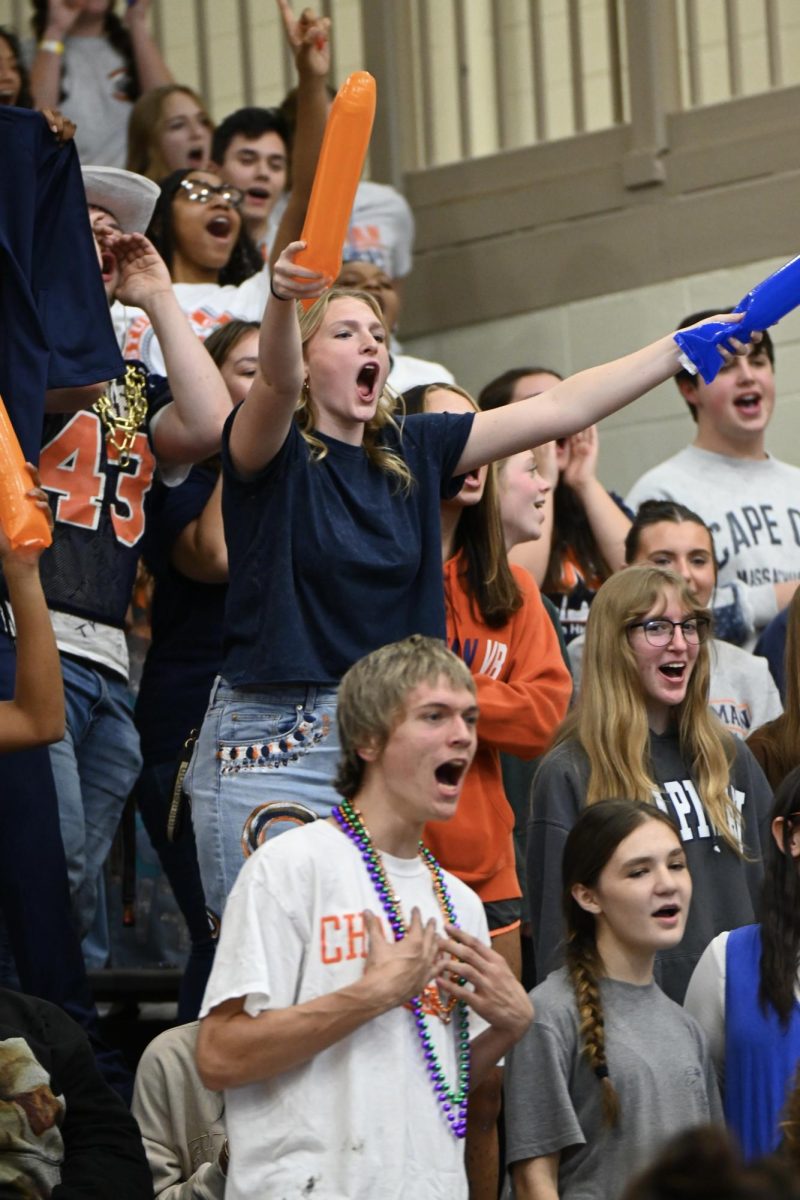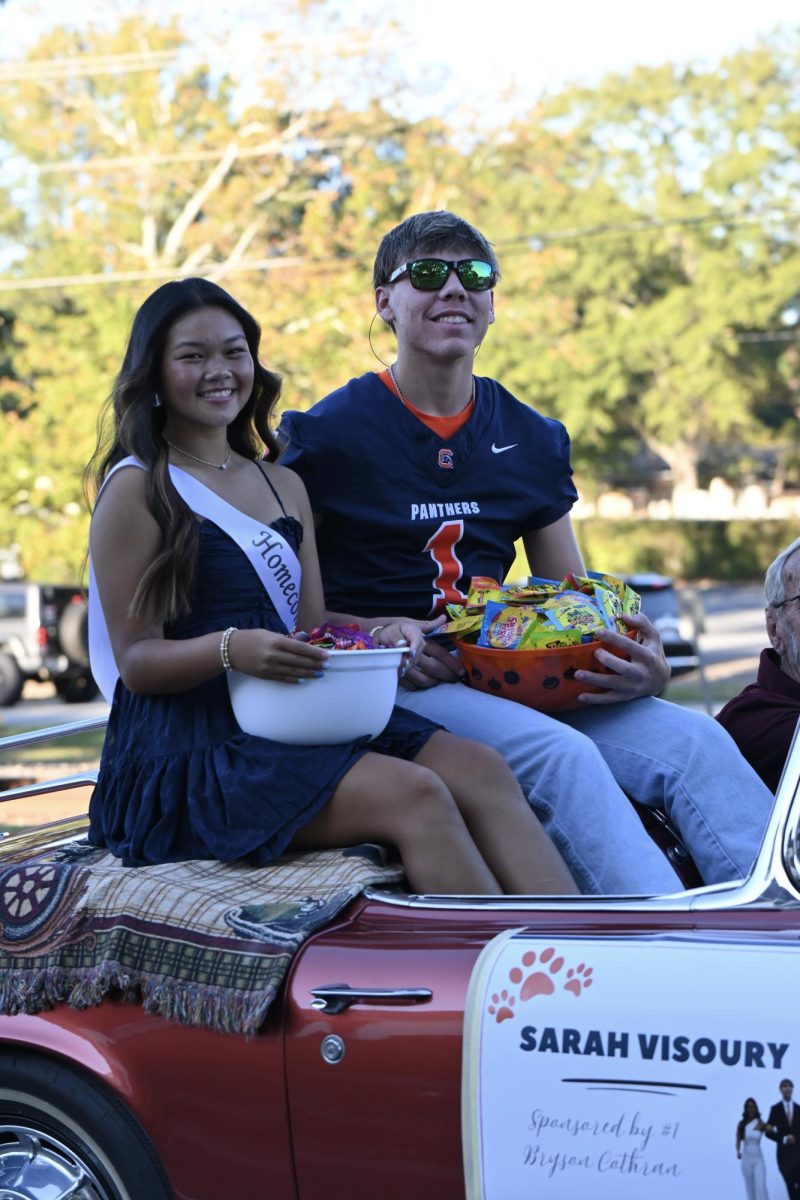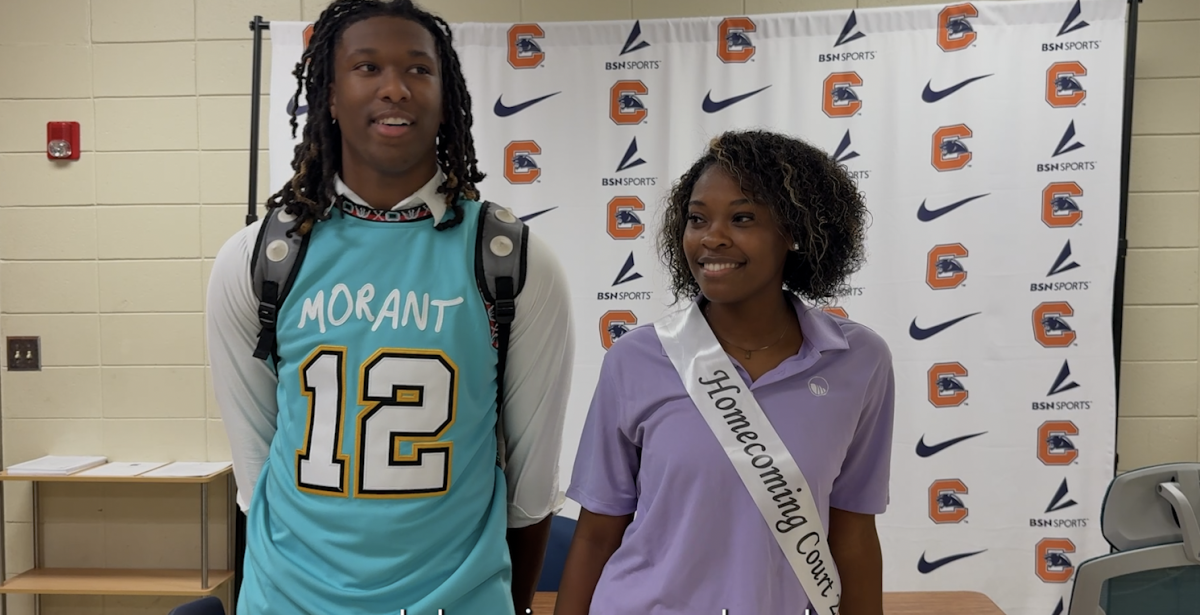In the past year, artificial intelligence (AI) use has been on the rise.
According to EdWeek, roughly 25% of high school students use AI in the classroom, which is a higher number than in past years.
Currently, South Carolina does not provide guidance on how schools and districts should respond to AI, based on research gathered by the Center on Reinventing Public Education.
This is forcing individual districts and teachers to figure out the best way to respond to AI use without guidance or support.
This new form of technology is becoming a common occurrence in Spartanburg School District, especially at Chapman.
Audio Engineering teacher Jimmy Pryor, who previously served as assistant superintendent for accountability and technology services for District One, explained what AI is.
“AI is a series of algorithms that have been programmed (to) learn,” Pryor said. “It starts to write its own algorithms and expand beyond its original program.”
In the classroom, English teacher Holly Hollifield has seen AI used in a variety of ways.
“I have students who are using it just to answer simple questions for an assessment or all the way up to using it to write a whole paper,” Hollifield said. “Right now, it is kind of tricky to detect (use of AI).”
In some classes at Chapman, AI is used as part of the learning process.
“In my classes, we are using artificial intelligence to extract instruments from popular songs,” Pryor said. “Then, we analyze those instruments to see how they’re recorded and how they’re mixed.”
In other classes, AI is being used as part of the learning process — but shouldn’t be.
Consequences vary for students who use AI to write entire essays or complete entire assignments, given that it can constitute plagiarism.
“(If students are) writing an essay and they’re crediting the ideas that are not theirs to other sources, that would warrant failing that assignment,” Hollifield said. “But, if someone uses it for a discussion question on an assignment in class, then I can just have a conversation with the student and they can go back and rewrite it.”
On the college level, AI use is taken very seriously.
Colleges and universities already have strict rules about cheating and plagiarizing work, and now that AI use is on the rise, they have to be extra diligent to make sure students don’t take advantage of AI in a negative way.
According to the University of South Carolina’s AI statement, “The use of Artificial Intelligence websites and bots like ChatGPT may be a violation of (various policies). It is the user’s responsibility to ensure that the use of that technology is both permitted to be used by the course instructor and that the use is clearly cited and/or documented in some way.”
Students see AI as both a problem and a resource.
Sophomore Gloriana Howard feels that AI can be a helpful tool for students.
“I think for ideas, (AI) is a great thing because, for general concepts, it can give you something really baseline and you can build off of it,” Howard said. “Sometimes people just need somewhere to start, and if AI can be used in a reasonable way, it’s totally fine.”
However, Howard believes that there should be parameters set around AI use.
“Unless there can be some way to have limits (on it), there are going to be irresponsible people who misuse it and ruin it for everybody,” she said.
Sophomore Okalani Fox agrees that AI causes more problems in school than solutions.
“There are too many (students) that would use it to cheat than to create,” Fox said.
Despite AI’s negative connotation, Pryor has optimism for the future of AI in the education system and the world in general.
“It’s probably the most powerful piece of technology we’ve ever created, and it’s still creating itself,” Pryor said. “If we can harness it, I believe it can solve a lot of problems in society and in each area of work and employment.”




